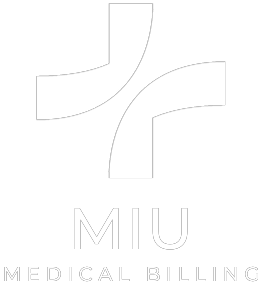Introduction
Due to the dynamic and competitive nature of the healthcare industry, revenue management is crucial for the organization to sustain itself. Medical revenue services facilitate accurate and timely capture of revenues in healthcare organizations, thus enabling healthcare providers to be more financially viable in delivering healthcare services. The coverage of these services extends to billing and coding processes, collections, and so on. Revenue Cycle Management is critical in healthcare as it helps to improve the revenue growth of patients’ payouts and avoid concerns of claim denial. The relevance of medical revenue services is apparent, and every provider knows that their overall operation depends on the efficiency of this section.
What are Medical Revenue Services?

Medical revenue services are a cycle of activities coordinating financial issues in the medical industry. These services include coding medical procedures, billing insurance companies and patients, and collecting balances. In its simplest form, medical revenue services facilitate the prompt acquisition of payments for services rendered by medical practitioners and institutions. By enhancing revenue cycle workflow, these services minimize errors and claim denials and improve cash flow. These services become very important to providers in helping make their organizations financially sustainable while complying with regulatory laws and policies of the healthcare industry.
The Role of Medical Revenue Service Collections
One of the critical services provided under medical revenue is collections. Medical revenue service collection means the act of making sure insurance companies and patients pay their bills. That is why timely and accurate collections are imperative for the health care provider. Non-reimbursements may lead to longer delays in payments and even result in a loss on the side of the providers, who may be unable to provide quality health services a nurse would like to offer. These considerations help to ensure that collections are done professionally and promptly, leaving the healthcare providers to deal with their primary business of serving their clients.
- Medical revenue collections: Ensure insurance firms and patients pay for their bills or the hospital they visited.
- Timely and accurate collections: Vital for stability of the financial position of healthcare suppliers.
- Impact of non-reimbursements: This can cause payment delays or financial loss for healthcare providers.
- Consequences for providers: Holding in the collections could create issues for the firm, causing it to be unable to deliver optimal health services.
- Focus on primary care: Professional collections enable healthcare to forego collecting debts independently rather than focusing on providing services to the patients.
Why Choose a Medical Revenue Services Collection Agency?
Availing services of a medical revenue services collection agency brings along the following advantages. These agencies focus on managing invoices and collecting payments in the healthcare industry so that medical facilities can get paid to the fullest. A significant benefit is their understanding of the many complicated rules about healthcare billing beyond the scope of most internal teams. However, with the help of these agencies, medical providers can avoid legal pitfalls of one sort or another, including audits. To this effect, hiring the services of a medical revenue services collection agency relieves the medical providers of the challenges of chasing after payment; it helps them improve their financial revenues and leaves them to deal with what they were hired to do, which is to treat the sick.
How a Medical Revenue Service Collection Agency Works
A medical revenue service collection agency operates under a framework to collect revenues properly. First,
- They review patients’ accounts to check which have not been fully paid.
- They then take the necessary collection steps by consulting with insurance companies and obtaining the essential payment from the patient.
- There is also an enhancement of software for billing and follow-up, and automatic follow-up systems to ease the collections process in those agencies.
- The provider can get real-time updates on claims and payments using claims tracking to enhance their financial position.
- The objective is, therefore, to achieve the most incredible sales while at the same time nurturing a good rapport with the patients and insurers.
Challenges in Medical Revenue Collections

Nonetheless, the use of medical revenue services has the following collection problems. Some problematic payment situations include claims being denied, underpaid, or slow payment from patients. These issues can arise due to poor coding, inadequate documentation, or communication with insurance providers. Further, there may be some difficulties with reacting to the changes in regulatory requirements. However, with the help of a medical revenue services collection agency, providers can gain an edge over these challenges. They have the resources and professional skills to fix payment disputes and design plans, which will help avoid future problems. In tackling these issues, providers are positioned to provide better financial results and decrease revenue loss.
Case Studies or Success Stories
Medical revenue service provider partnerships have proved helpful to many healthcare organizations in the current business environment. For instance, a mid-sized clinic operating in Texas found out that high rates of claim denial impacted its cash flows massively. By engaging a medical revenue service collection agency, they experienced a reduction of 30% in the number of denials and an improvement of 20% in revenues within six months. Some of the actual client success stories explain how a decision to outsource the function made them more centered on the patients and their well-being, as their financial consequences improved. Reading these success stories, one can understand how to use medical revenue services to address financial constraints in treating diseases.
FAQs
What is the concept of medical revenue service collections?
Medical revenue service collections include achieving outstanding balances from insurance firms and patients for appropriate and punctual payments.
How do I find the right medical revenue services collection agency?
Before engaging the services of a medical revenue services collection agency, it is crucial to factor in their specialization in the medical industry’s billing processes, how they adhere to government policies, and how they employ the best technologies towards collection.
What is the benefit of outsourcing medical revenue services?
There is one direct good that comes with outsourcing a medical revenue service. It is a way to gate providers to concentrate on patients. At the same time, business aspects of some operations, such as billing and collections, are done professionally to increase revenues and reduce unnecessary overhead.
9. Conclusion
Medical revenue services are the backbone of the financial needs of any healthcare organization. The medical billing and coding services and collections help the organization accelerate the revenue cycle. With the help of medical revenue services, collections agencies, doctors, and hospitals are ready to obtain the best financial results and thus can work on improving their main goal – to treat their patients. Since complexities in billing and collections in the healthcare sector are constantly changing, using professional medical revenue services is part of an intelligent approach to improve revenue management. These agencies can be good partners for healthcare providers to enhance their revenue cycle and achieve sustainability.




